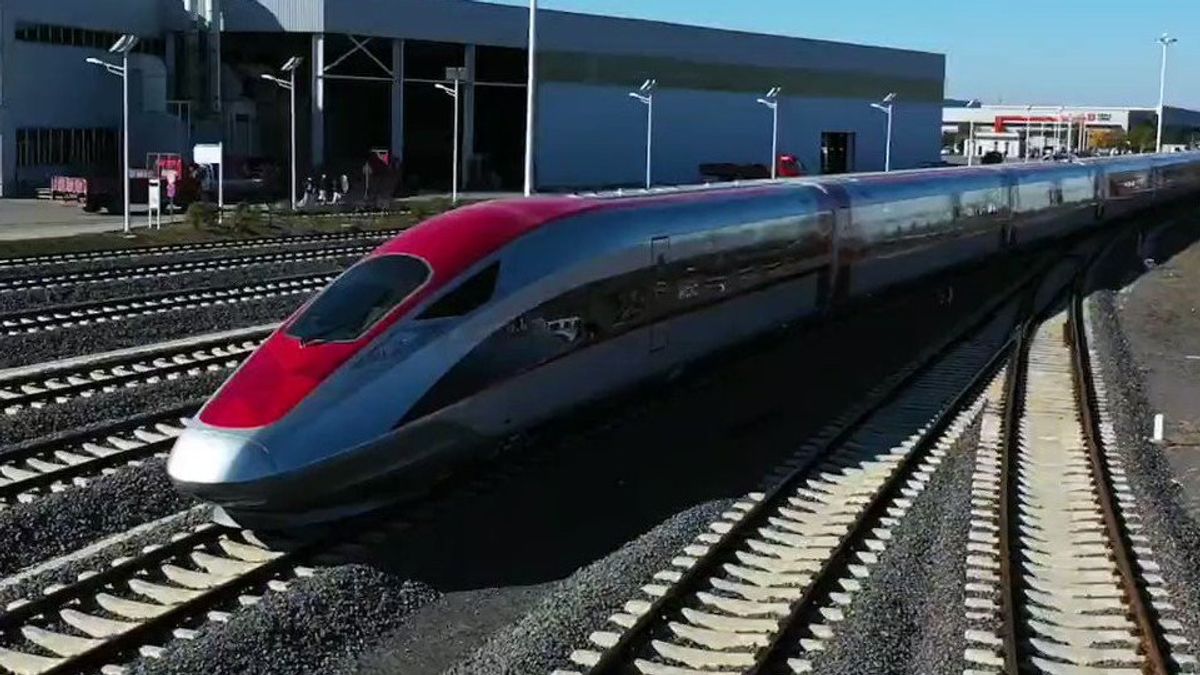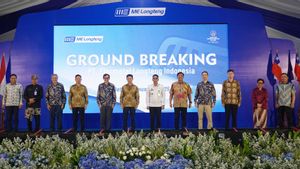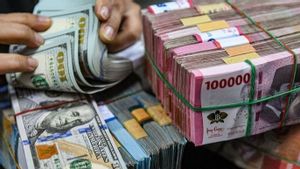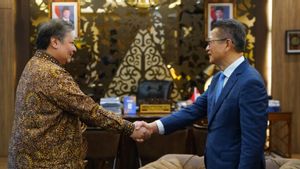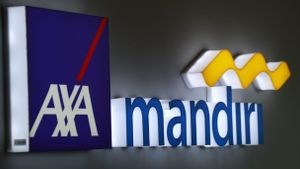JAKARTA - The cost of the Jakarta Bandung High Speed Rail (KCJB) project was initially predicted at US$6.071 billion to US$7.5 billion. This is because in the construction process there was an increase in costs of US$1.449 billion or more than Rp21 trillion. At such a large cost, when will the KCJB project be able to return its capital? President Director of PT KAI Didiek Hartantyo estimates that the Jakarta Bandung high-speed rail project will only return its capital 38 years after it officially operates. KCJB itself It is targeted to operate in June 2023. This means that with this calculation, the government will only be able to return the capital in 2061. "According to the calculation of the feasibility study (feasibility study) for 38 years," said Didiek in a meeting with commission VI, quoted Thursday, November 10. Meanwhile, the President Director of PT Kereta Cepat Indonesia China (KCIC) Dwiyana Slamet Riyadi explained that the calculation included a tariff of IDR 250,000 for the furthest distance for three years. The amount of this tariff is in accordance with a request from the Ministry of Transportation. Even so, said Dwiyana, the estimated return on capital does not take into account income from the development of transit-oriented areas (TODs). "The 38 years were calculated by financial model consultants and reviews of the feasibility study, already accounting for the 3 years with a rate of the furthest Rp. 250,000 (rute). And not taking into account revenue from TODs," said Dwiyana. Currently, said Dwiyana, KCIC's funds are focused on completion of construction. However, Dwiyana said the land owned by KCIC would be utilized and developed. "For example, Halim Station has 3.4 hectares of land that will definitely be developed for property that supports services. We still haven't included it, meaning it's a reserve," he said. As previously reported, the cost overrun or cost overrun for the Jakarta-Bandung high-speed rail (KCJB) project has reached US$1.449 billion or equivalent to Rp21.4 trillion (assuming an exchange rate of Rp14,800). So the cost the project, which was originally predicted at 6.071 billion US dollars, has now become 7.5 billion US dollars. President Director of PT KAI Didiek Hartantyo said BPKP carried out two times the review cost overrun or swelling the cost of the KCJB project. The first results of the review total cost overruns of 1,176 US dollars. Meanwhile, the second result, the cost overrun was worth 273 million US dollars.
"So with the addition of one and two, the total cost overrun value is US$1,449 billion," he said in a hearing meeting with Commission VI, Wednesday, November 9. For your information, the figure of swelling the cost of the KCJB project increased when compared to the calculation and review of the BPKP on March 9, 2022, which was only US$1.17 billion or equivalent to Rp17.64 trillion. Didiek said, this cost overrun will be paid a joint venture between the Indonesian and Chinese BUMN consortiums of 25 percent and 75 percent of it comes from the withdrawal of loans to the China Development Bank (CDB). "It has reached an initial agreement with the Chinese side that the cost overrun financing structure is carried out with a scheme with 25 percent equity, 75 percent loan (loans). This is already an agreement," said Didiek. Didiek said, for the total Indonesian equity portion of Rp3.2 trillion, it is proposed to be sourced from PMN to PT KAI as the leading sector.
The English, Chinese, Japanese, Arabic, and French versions are automatically generated by the AI. So there may still be inaccuracies in translating, please always see Indonesian as our main language. (system supported by DigitalSiber.id)
